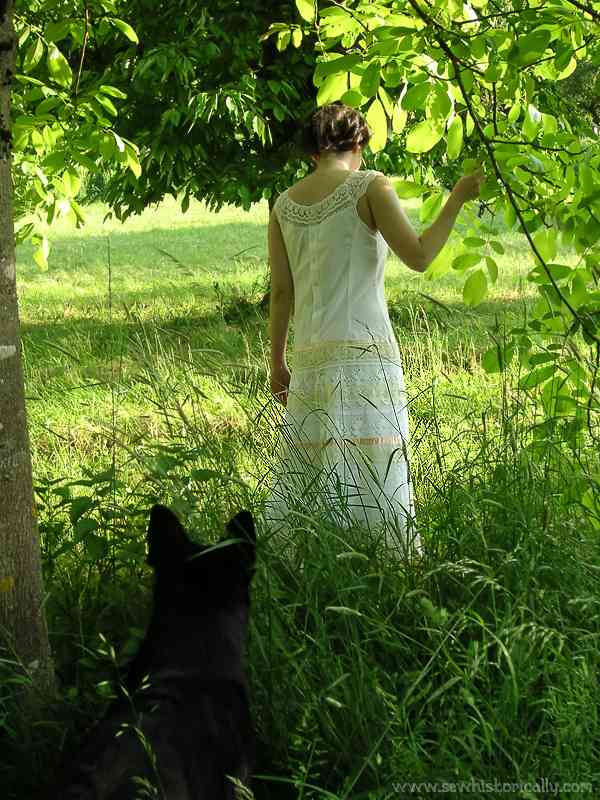‘Every well groomed woman is very particular to see that outside garments fit without wrinkles and with a glove-like appearance across the hips and back. There is only one way to accomplish this result, and that is to have the under garments without fullness or wrinkles.’ (School Sewing Based On Home Problems, 1916).
In the Edwardian era, princess petticoats or princess slips were worn as combination garment to reduce the many layers of underwear. The princess petticoat was usually worn over the corset and replaced the petticoat and corset cover.
Related: Mint Green Batiste Princess Slip With Val Lace Yoke
For my Edwardian princess petticoat I used off-white cotton fabric and countless meters of cotton lace! 😉 I combined white and cream-colored cotton lace trims, such as Valenciennes lace, bobbin lace and needle lace, of different width and also rose-colored satin ribbon. The lace part of the skirt has a thin cotton ruffle underneath – called dust ruffle in the Edwardian era.
A slip with princess seams is suitable to wear under ‘smooth fitting skirts’ as it makes a ‘continuous line from the shoulder to the bottom of the skirt’. ‘The trimming for the upper part of the waist may be made as elaborate as desired because the slip takes the place of the regular corset cover. The bottom of the slip may be trimmed with ruffles, with lace, with rows of insertion sewed together to make a flounce’. (School Sewing Based On Home Problems, 1916)
I drafted my own pattern for the Edwardian princess slip. At first I had sewn an Edwardian petticoat (just a skirt) with the lace flounce, but I didn’t like it. So I detached the lace flounce again and turned it into this princess slip.
All seams of my princess slip are flat felled seams; and I finished the armholes ‘with bias strips of the material’, as recommended here in School Sewing Based On Home Problems, 1916. The princess petticoat is closed at the back with buttons and buttonholes, and snaps at the lace yoke.
Here’s a 1900s lace princess slip, a ca. 1905 princess petticoat with broderie anglaise, an Edwardian princess slip with button closure and another princess petticoat with broderie anglaise.

